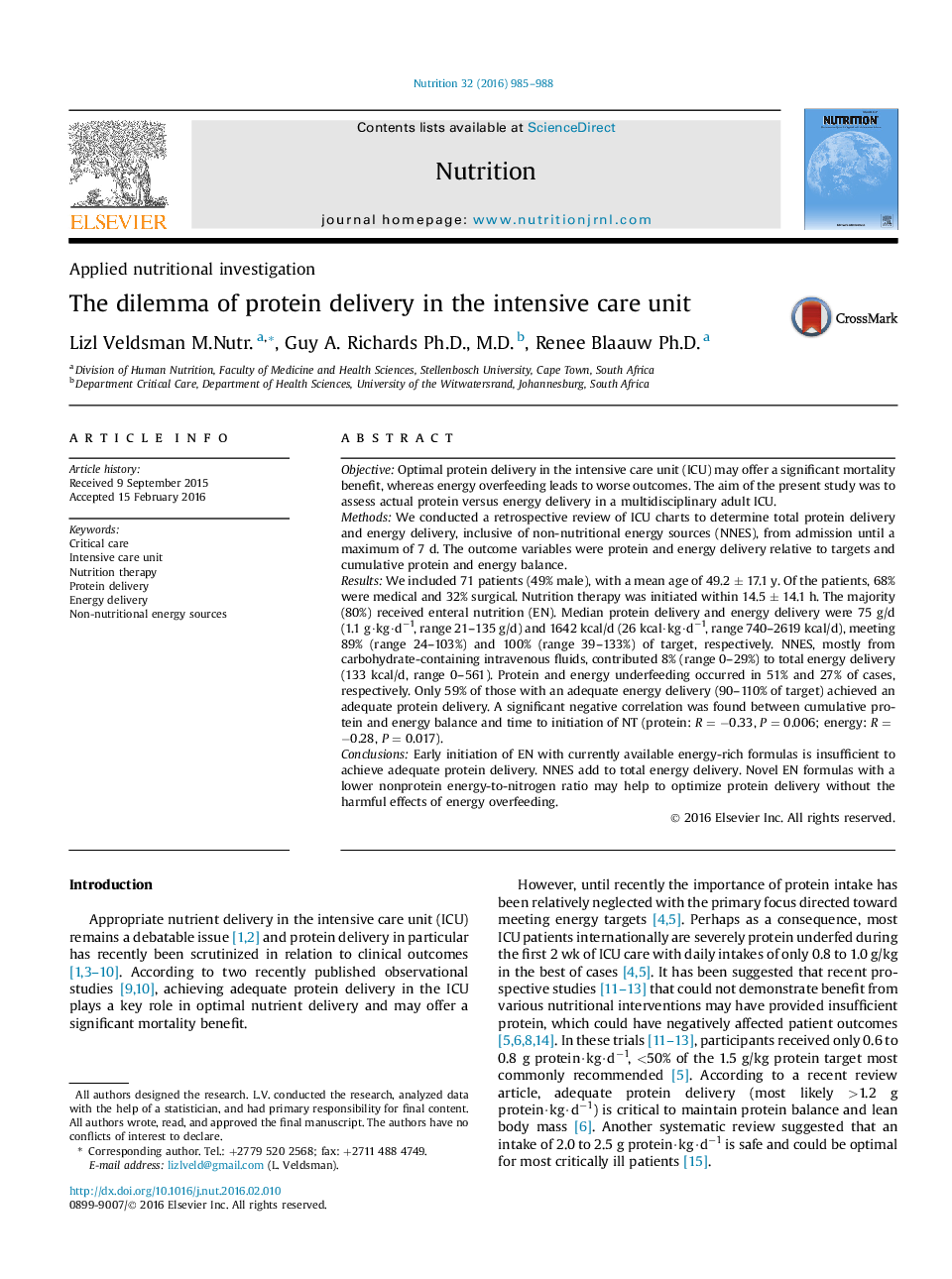| Article ID | Journal | Published Year | Pages | File Type |
|---|---|---|---|---|
| 3276101 | Nutrition | 2016 | 4 Pages |
•Early enteral nutrition (EN) with currently available EN formula provides insufficient protein.•Non-nutritional energy sources add to nonprotein energy delivery.•Novel EN formulae with a lower nonprotein energy-to-nitrogen ratio are needed.
ObjectiveOptimal protein delivery in the intensive care unit (ICU) may offer a significant mortality benefit, whereas energy overfeeding leads to worse outcomes. The aim of the present study was to assess actual protein versus energy delivery in a multidisciplinary adult ICU.MethodsWe conducted a retrospective review of ICU charts to determine total protein delivery and energy delivery, inclusive of non-nutritional energy sources (NNES), from admission until a maximum of 7 d. The outcome variables were protein and energy delivery relative to targets and cumulative protein and energy balance.ResultsWe included 71 patients (49% male), with a mean age of 49.2 ± 17.1 y. Of the patients, 68% were medical and 32% surgical. Nutrition therapy was initiated within 14.5 ± 14.1 h. The majority (80%) received enteral nutrition (EN). Median protein delivery and energy delivery were 75 g/d (1.1 g·kg·d−1, range 21–135 g/d) and 1642 kcal/d (26 kcal·kg·d−1, range 740–2619 kcal/d), meeting 89% (range 24–103%) and 100% (range 39–133%) of target, respectively. NNES, mostly from carbohydrate-containing intravenous fluids, contributed 8% (range 0–29%) to total energy delivery (133 kcal/d, range 0–561). Protein and energy underfeeding occurred in 51% and 27% of cases, respectively. Only 59% of those with an adequate energy delivery (90–110% of target) achieved an adequate protein delivery. A significant negative correlation was found between cumulative protein and energy balance and time to initiation of NT (protein: R = −0.33, P = 0.006; energy: R = −0.28, P = 0.017).ConclusionsEarly initiation of EN with currently available energy-rich formulas is insufficient to achieve adequate protein delivery. NNES add to total energy delivery. Novel EN formulas with a lower nonprotein energy-to-nitrogen ratio may help to optimize protein delivery without the harmful effects of energy overfeeding.
